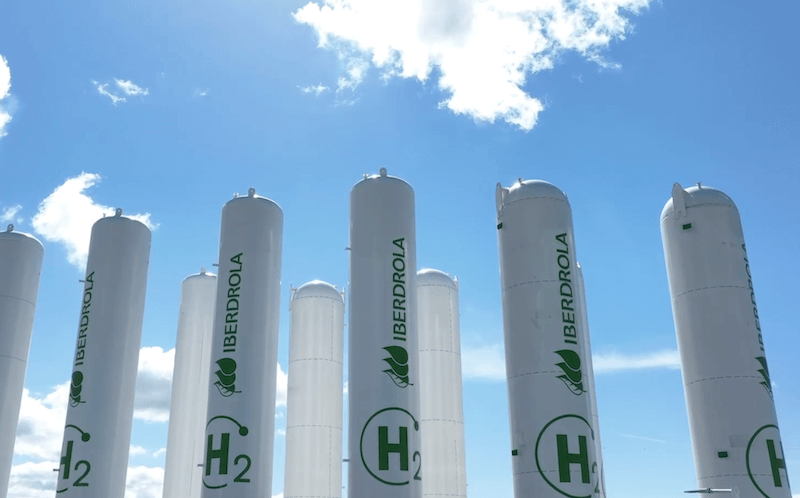
Portuguese PM quits over hydrogen probe
Portuguese police have raided 42 properties looking for evidence of government corruption in four projects, including a green hydrogen hub in Sines. Prime Minister Antonio Costa has quit, the government is shaking, and there are tough questions for future tenders.
- Portuguese police have raided 42 properties including the PM's official residence
- They are looking at alleged corruption in four projects, including a hydrogen hub
- Prime Minister Antonio Costa resigned but said he has a "clear conscience"
Green hydrogen firms will only be able to realise the full potential of the technology with support from politicians. However, sometimes that support goes too far. That is the accusation at the heart of a green hydrogen scandal that is rocking Portugal.
On Tuesday 7th November, Portuguese police raided 17 homes, including the prime minister’s official residence São Bento Palace, and 25 other properties, including the government ministries in charge of infrastructure, environment and climate action.
The police were seeking evidence of corruption in recent green hydrogen and lithium exploration deals, including allegations that politicians gave preferential treatment to Portuguese firms where they would personally benefit. The Attorney General’s Office in Portugal published further details of the probe in this statement last Tuesday.
The probe relates to four projects: a green hydrogen production hub in Sines; a pair of lithium exploration schemes; and the Start Campus data centre development. But it now threatens the reputation of the green hydrogen industry in Portugal; upcoming tenders for green hydrogen and offshore wind; and the future of the government. On Tuesday afternoon, António Costa resigned as Portugal’s prime minister because he said his role was incompatible with the probe, but said he has a “clear conscience”.
Seven defendants
The police has named seven people as defendants in these investigations.
Five of have been detained: Vítor Escária, the head of the Prime Minister’s office; Diogo Lacerda Machado, a businessman who is also reportedly a close friend of Costa; Nuno Mascarenhas, the mayor of Sines; and Start Campus administrators Afonso Salema and Rui Oliveira Neves.
In addition, Infrastructure Minister João Galamba and Nuno Lacasta, chairman of the board of directors of the Portuguese Environment Agency, are named as defendants.
Key to the investigation is the claim by newspaper Correio de Manhã that São Bento Palace was used for meetings where politicians lobbied for preferential treatment by favoured firms. The green hydrogen project under investigation is the H2Sines plant, where the H2Sines consortium was set up in 2019 including high-profile players such as EDP, Engie, Gap and Vestas. EDP and Galp exited the group in 2021 to form the GreenH2Alantic consortium, but work continues on H2Sines, where a first shipment of liquefied hydrogen is sue to be supplied to Dutch port Rotterdam in 2028.
The other three projects under investigation include two lithium exploration projects in Romano and Barroso; and the Start Campus data centre project in Sines, where it is alleged that the project was only designated as a project of national interest – and therefore secure public funds – because of the involvement of Lacerda Machedo.
The prosecutor says its investigation involves “alleged malfeasance, corruption of elected officials, and influence peddling” in awarding the concessions. In response, Costa has said he has a “clear conscience” about the allegations, and he was “not conscious of having done any illegal act or even any reprehensible act”.
However, this is the latest in a series of corruption scandals since he became prime minister in 2015. The political turmoil caused by these investigations and Costa’s exit must also cast doubt over planned green hydrogen and offshore wind tenders.
What happens next
It is natural for national governments to seek to promote their own companies in their tender processes. It is normal to see more French companies in winning tender bids in France, for example. Arguably, it also helps the renewables sector if governments can show that economic benefits of projects are being returned to local companies.
But this scandal in Portugal shows why it is important for politicians at both national and local levels to be fair and transparent in how they support projects. Renewables and power-to-X projects are now larger and more important than ever, which brings with a high level of scrutiny – and reputational damage for all if corruption is alleged.
This is not even the first corruption probe related to renewables in Portugal. Top EDP executives were implicated in an investigation in 2020 over accusations that former economy minister Manuel Pinho had received favours from them between 2005 and 2009. EDP has consistently denied the allegations, which it argued are “without any grounding in facts”, but these negative claims cast a long shadow. The court case about these claims was only able to, belatedly, start last month.
Therefore, the challenge for green hydrogen in Portugal is twofold. First, questions related to the H2Sines complex are, at best, a distraction for the developers; and, at worst, raise questions about whether support for projects have been awarded fairly.
And second, the collapse of the government into a morass of corruption allegations can only cast doubt over whether announced tenders will happen on schedule. This includes a tender announced in October for developers keen to inject hydrogen into the gas grid, and the country’s first offshore wind tender, where developers are set to submit initial expressions of interest by 14th November.
Costa may be gone, but his government remains – at least for now.
